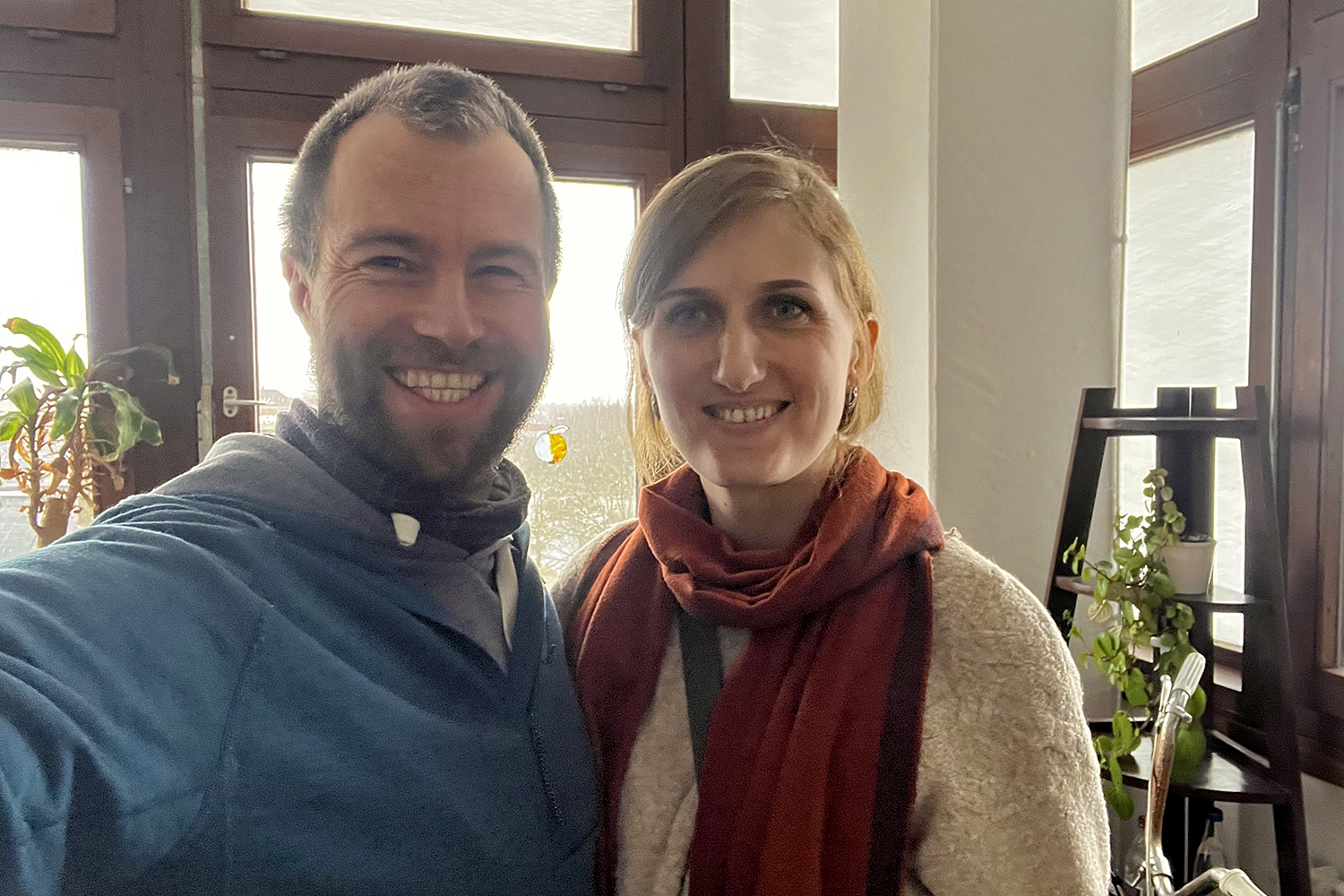A new start in Germany Scientist from Ukraine in the Isodrones team
For Svitlana Trotska, it is the opportunity to start all over again: The Ukrainian scientist recently joined the Junior Research Group “Isodrones” at the Institute of Geoecology at TU Braunschweig. Here she will investigate the dynamics of water content in trees. Her research is financed by a six-month scholarship from “Isodrones” funds. To employ Svitlana Trotska in the team beyond that, research group leader Dr Matthias Beyer is looking for further funding support.

Svitlana Trotska: “I am glad to gain new knowledge and experience in the project with the Isodrones team.” Picture credits: Svitlana Trotska/TU Braunschweig
Last autumn, Svitlana Trotska became aware of TU Braunschweig and the Institute of Geoecology via the #ScienceForUkraine platform. When Dr Matthias Beyer received her email, he was determined to offer his help to the Ukrainian scientist. “I think this is also our duty as a university,” he emphasises. But most short-term funding programmes for refugees had already expired by then. Therefore, Beyer decided to hire Svitlana Trotska initially on a scholarship basis for a limited time.
The scientist is very grateful for this: “Without the support of Matthias Beyer and his team, I would not be able to do research again now. I am happy to be able to work with these incredibly professional and unconventional scientists!”
Research on water content in trees
With “Isodrones”, Svitlana Trotska starts a new research direction. Previously, she had done her doctorate in Ukraine in a related field. For her dissertation, she studied the populations of rare plant species in the floodplains of the Psel river basin, a tributary of the Dnieper. At TU Braunschweig, she will now analyse the dynamics of stem water content in tropical dry forest trees – the amount of water stored in the trunk of trees. “Stem water content is an important parameter for understanding water use strategies, plant health and the adaptation strategies of trees to environmental conditions. It varies considerably between different tree species and is currently not well understood,” explains Dr Matthias Beyer.

Dr Matthias Beyer is happy that the Ukrainian scientist Svitlana Trotska is now part of his team. Piture credits: Matthias Beyer/TU Braunschweig
“I am glad to gain new knowledge and experience in the project with the Isodrones team,” writes Svitlana Trotska in an email. She currently lives in Essen, North Rhine-Westphalia, with her two children. The war in Ukraine has divided her life into a “before” and “after”. She lived with her family in Sumy, a city in north-eastern Ukraine. Here she did her doctorate and taught at the Sumy National Agrarian University (SNAU) after completing her master’s degrees in agronomy and forestry.
From Sumy to Germany
“I never planned to leave Ukraine and my home,” says the scientist. “For a very long time I ‘walked away’ from what I saw, experienced and lost. I waited, I hoped. But then one day I realised that our reality is just like that, and and for a certain time we will not live at home. So we were forced to look for a safer place for us and the children.”
In spring 2022, Svitlana Trotska therefore came to Germany with her two children. “We have met incredible people here, sincere and caring! Many thanks to everyone who supported us during this first complicated period when we arrived in an unfamiliar country, and to those who still support and care for us!”
Further support sought
The scientist is just getting to know Brunswick when she meets for meetings with the “Isodrones” team. “Sumy has about the same number of inhabitants as Brunswick,” she reports. “I have read a lot about the university and am very impressed by its history and the values that are supported, developed and preserved.” She hopes to return to her home country one day – with new knowledge, new experiences and new opportunities.
To enable Svitlana Trotska to continue working as a researcher in the “Isodrones” team, Dr Matthias Beyer is asking for support: “If anybody knows about funding initiatives that are rather short-notice and/or are refugee-oriented, we would be happy if they could share with us. If somebody has good contacts to funding agencies who would be willing to support us, please get us into contact with them. Any help is appreciated. Also, spreading this on social media and/or following our social media accounts helps tremendously.“
